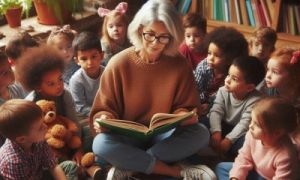World Environment Day is on the 5th of June. It is a great opportunity to introduce young children to environmental awareness in a fun and engaging way. Early childhood education plays a crucial role in fostering a sense of responsibility and connection to nature. The following article provides information on Why World Environment Day Matters in Early Childhood Education, Strategies To Help Children To Care For The Environment, How World Environment Day Supports Sustainability Education, and more.
Why World Environment Day Matters in Early Childhood Education
- Helps children develop a sense of belonging and connection to the natural world.
- Encourages hands-on learning through activities like planting, recycling, and exploring nature.
- Supports sustainability education, teaching kids about conservation and responsible resource use.
Strategies To Help Children To Care For The Environment
Here is a list of ideas and strategies that will help children to care for the environment:
- For older children, environmental issues such as drought or daily weather reports including updates on air quality and pollution levels should be discussed during morning group time or and a chart to record these findings should be made as visuals within the room.
- For Preschoolers, choose “Energy Savers” – responsible for noticing lights, fans and other appliances left on when not in use. Likewise, choose ‘Water Savers” – responsible for noticing taps left on and other wasted water.
- Observing and caring for various animals, such as fish, reptiles and insects
- Implementing water conservation mechanisms such as timers, stickers visible on taps, putting out buckets to collect rain water
- Taking responsibility for turning off lights and fans before going outdoors
- Caring for worm farms and using the jars of “worm juice” collected by children as fertiliser to use at home
- Sorting and recycling waste after meals and encouraging the use of reusable containers to store snacks and meals
- Make gardening part of the daily and weekly routine. You can engage children by building hype around gardening. The whole gardening process can be taught starting with indoor seed planting and culminating with harvesting edible fruits and vegetables to make a group meal.
- Use recyclable items for craft activities. Common everyday materials ranging from cereal boxes, toilet rolls and aluminium cans can be used for a range of recycling ideas in childcare that can stimulate the imagination and keep children engaged for hours.
- Build a compost bottle using a clear plastic soft drink bottle with the top cut off and label removed. Add layers of compostable material and keep moist. Children can then observe the changes that occur in organic material as the composting material takes place.
- Create edible gardens for sharing and/or cooking produce.
- Have separate bins for waste eg. rubbish, organic and recycling. Ensure the children understand what goes in the different bins through modelling, pictures, stories and games.
How World Environment Day Supports Sustainability Education
- Hands-on Learning—Activities like planting trees, recycling projects, and water conservation games teach children practical ways to care for the planet.
- Early Awareness—Introducing sustainability concepts at a young age helps children develop eco-friendly habits that last a lifetime.
- Community Engagement—Events and activities encourage collaboration between children, educators, and families, reinforcing the importance of collective action.
Further Reading
For more information: World Environment Day


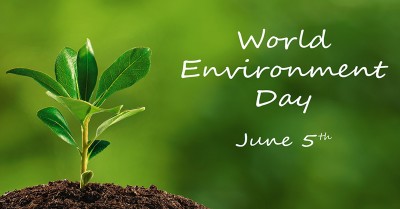

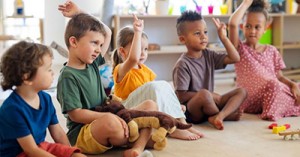
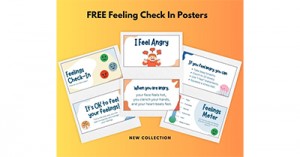
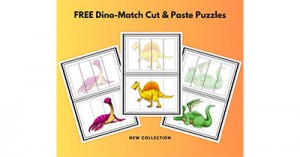
 Open ended questions cannot be responded to with one word answers such as yes or no. These types of questions enables a child to provide
Open ended questions cannot be responded to with one word answers such as yes or no. These types of questions enables a child to provide During your child’s preschool years, an important milestone begins to emerge. This is the development of pre-writing skills. Pre-writing skills are used to encourage, develop
During your child’s preschool years, an important milestone begins to emerge. This is the development of pre-writing skills. Pre-writing skills are used to encourage, develop Open ended materials enables children to play freely. They are objects that have no rules to follow, use or function. Raw materials that can be
Open ended materials enables children to play freely. They are objects that have no rules to follow, use or function. Raw materials that can be An Acknowledgment of the Country is a way of showing respect for the Traditional Owners and can be given by both non-Indigenous people and Aboriginal
An Acknowledgment of the Country is a way of showing respect for the Traditional Owners and can be given by both non-Indigenous people and Aboriginal Language plays an important role in a child’s development. It enables a child to communicate effectively with their family, learn at school, socialize with friends,
Language plays an important role in a child’s development. It enables a child to communicate effectively with their family, learn at school, socialize with friends, Like adults, children have to deal with their own stress in life. Moving house, starting a new school, preparing for a new sibling - these are
Like adults, children have to deal with their own stress in life. Moving house, starting a new school, preparing for a new sibling - these are Playdough is such a versatile material. It provides numerous benefits to children as they manipulate it, it is safe and soothing and provides children with
Playdough is such a versatile material. It provides numerous benefits to children as they manipulate it, it is safe and soothing and provides children with Teaching children about sustainability enables them to appreciate and respect the natural environment. Early childhood services can provide meaningful hand on learning experiences in order
Teaching children about sustainability enables them to appreciate and respect the natural environment. Early childhood services can provide meaningful hand on learning experiences in order Recycling is an important concept that teaches children to care for the environment. It encourages children to be responsible and show a growing appreciating for
Recycling is an important concept that teaches children to care for the environment. It encourages children to be responsible and show a growing appreciating for When children apply paint to paper, glue things together, or pound a lump of clay, they experiment with colour, shape design and texture.
When children apply paint to paper, glue things together, or pound a lump of clay, they experiment with colour, shape design and texture.
